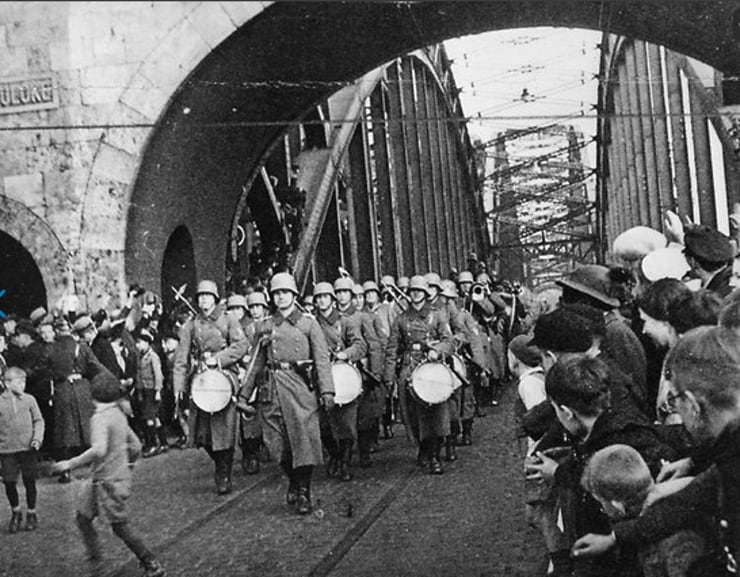Děkuji za článek. 
7.3.1936 Germany occupied the Rhineland
Categories: Second World War , Calendar

Adolf Hitler refused to accept the negative consequences for Germany of the signing of the Treaty of Versailles after the end of the First World War. He drastically increased the number of men in his army to half a million, and in early March German troops invaded the Rhineland, which had been demilitarised.
By the summer of 1936 Hitler's regency was characterized by a series of foolish political provocations and blackmail. In mid-October 1933, for example, Germany announced that it was leaving both the League of Nations and the Geneva Disarmament Conference, setting off a massive rearmament drive.
"Less than two years later - in mid-March 1935 - Hitler introduced universal conscription, violating one of theof the most important provisions of the Treaty of Versailles," says Oliver Hilmes in Berlin 1936: Sixteen Days in August.
Instead of one hundred thousand men, the new German army numbered half a million. Hitler took the most drastic step in early March 1936, when he had German troops march into the demilitarised Rhineland. "Restoring the national honour and sovereignty of the Reich," was Hitler's justification for his decision, which broke an international agreement. Germany was not allowed to have military garrisons in the area.
Years later, Hitler admitted that the forty-eight hours after the occupation of the Rhineland were the most exciting period of his life. "If the French had marched into the Rhineland then, we would have had to withdraw again in disgrace, because the military the forces we had at our disposal at that time would not have been sufficient even for a reasonable resistance," Hitler also said later.
The Wehrmacht troops marched out at dawn on 7 March. But chaos accompanied the advance. They had not a single live cartridge, no grenades and no ammunition for the air machine guns.
But fortunately for him, nothing of the sort happened. London and Paris behaved very calmly in view of the situation, except for an exchange of notes of protest. "Thus Hitler has exposed the indecisiveness of the Western Powers, will humble them and drive them through the political arena like a bear mauling a bear. A few weeks later he will show a friendly face again at the Berlin Olympics. He behaved like a peace-loving statesman," Hilmes writes.
But he was already "creating" a document in his head that contained his terrible plans. He finished it in August 1936. For example, it states that Germany is overpopulated and needs new living space. Two years later, he took over the Sudetenland and Austria.
Sources: Oliver Hilmes: Berlin 1936 - Sixteen Days in August
www.ksta.de
www.welt.de
The article is included in categories:



